Strong resolve shown at graft busting
Updated: 2014-03-03 03:54
By AN BAIJIE (China Daily)
|
||||||||
|
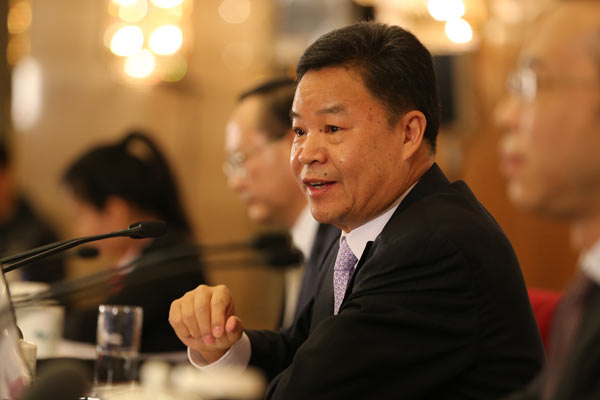 |
|
Lyu Xinhua, spokesman for the second session of the 12th National Committee of the Chinese People's Political Consultative Conference (CPPCC) answers questions from the press inBeijingMarch 2, 2014. [Photo by Jiang Dong/China Daily] |
Anyone who breaks the law or breaches Party discipline will be severely punished regardless of his official rank, and "this is definitely not empty talk", said the spokesman for the top political advisory body on Sunday.
Lyu Xinhua was responding to a question about a former member of the Party's highest decision-making authority, during a news conference before the opening of the annual session of the National Committee of the Chinese People's Political Consultative Conference.
China is firmly resolved to fight corruption, and last year, 31 senior officials, some of them above ministerial level, were investigated for graft, Lyu said.
He said he has also read related media reports but refrained from elaborating.
"That's all I can say right now, and I think you understand what I mean," he said.
In one recent anti-graft case, Ji Wenlin, vice-governor of South China's Hainan province, is being investigated on corruption charges.
Since December 2012, the Central Commission for Discipline Inspection, the Party's top anti-graft agency, has launched investigations into several high-ranking officials.
They include Li Chuncheng, former deputy Party chief of Sichuan province; Li Chongxi, former top political advisor of the province; and Jiang Jiemin, former head of the State-owned Assets Supervision and Administration Commission.
On Dec 20, Li Dongsheng, then vice-minister of public security, was investigated on corruption allegations.
To fight corruption and build closer ties between the Party's officials and the public, a series of policies and measures have been rolled out, in response to the public's concerns.
A sweeping anti-corruption and work-style improvement drive was launched by the Party when its new leadership took office in 2012.
"The measures have proved effective and are improving the conduct of the Party," Lyu said, adding that the improvement of the Party's work style will be a long-term, complicated and challenging task.
Huang Shuxian, deputy chief of the Central Commission for Discipline Inspection, said earlier that anti-graft authorities will show zero tolerance for corruption.
"Corruption hurts the Party most deeply, and it is the common wish of both the Party and the people that corrupt officials should be severely punished," he said in a report published on Sunday.
He said that anti-graft agencies nationwide have handled 11.2 percent more cases than in the previous year and punished 13.3 percent more corrupt officials in the past year.
"We have exerted high pressure on corrupt officials," he added.
During the news conference, spokesman Lyu also said that all of the CPPCC members are Chinese citizens and that dual citizenship is not allowed under China's law.
CPPCC members should cherish their title and abide by the laws, Lyu said while answering a question about the cancellation of some CPPCC memberships.
Liu Yingxia, a member of the CPPCC National Committee and board chairwoman of the Harbin Xiangying Group, was stripped of her membership during a meeting on Feb 20.
On Feb 27, the National People's Congress Standing Committee dismissed two NPC deputies — Chen Anzhong, former deputy director of the standing committee of Jiangxi provincial people's congress, and Zhu Deyi, former mayor of Jixi in Heilongjiang province.
Chen was removed from his post in December for corruption.
Zhu Zhe contributed to this story

 Rio drops protests for Carnival
Rio drops protests for Carnival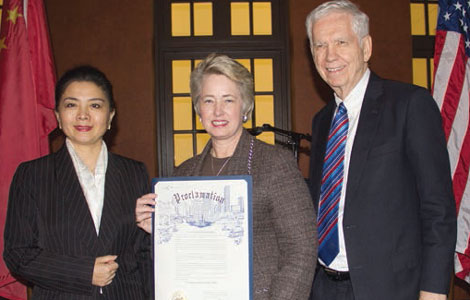
 Houston-China bonds deepen with new group
Houston-China bonds deepen with new group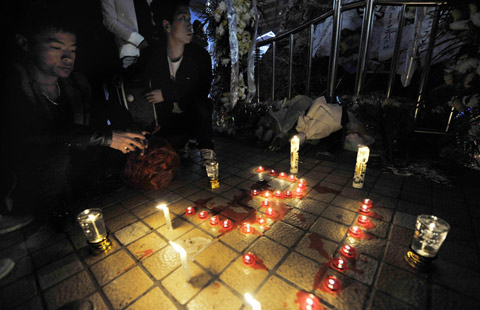
 Citizens mourn victims of Kunming terror attack
Citizens mourn victims of Kunming terror attack
 Putin justifies potential military move in Ukraine
Putin justifies potential military move in Ukraine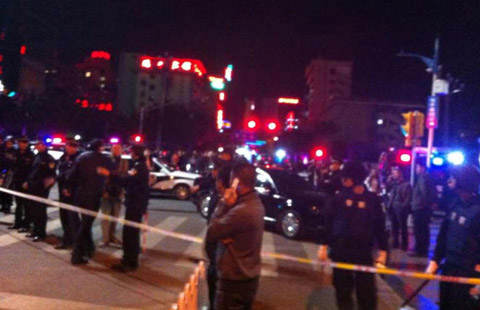
 Photos: Kunming rail station violence
Photos: Kunming rail station violence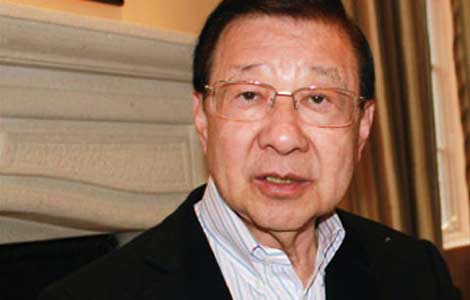
 Successful businessman gives back to the community
Successful businessman gives back to the community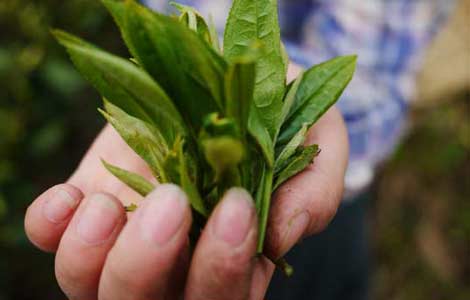
 Tea with heart
Tea with heart
 Wanting Qu: Chinese-Canadian singer-songwriter launches tour
Wanting Qu: Chinese-Canadian singer-songwriter launches tour
Most Viewed
Editor's Picks

|

|

|

|

|

|
Today's Top News
China to severely punish terrorist attackers
Ukraine mobilizes after Putin's move
Travel the world via the Times Show
China: no one is above the law
China urges solution in Ukraine
Beijing vows tough stance on smog
28 dead in Kunming rail station violence
China rejects US GM corn shipments
US Weekly

|

|






